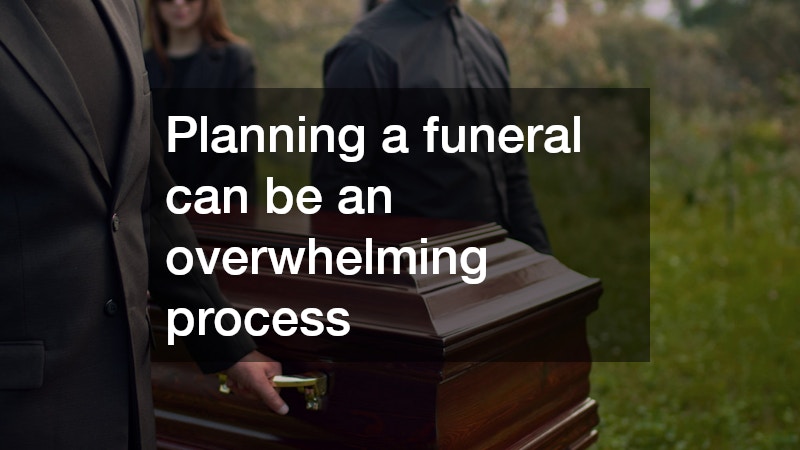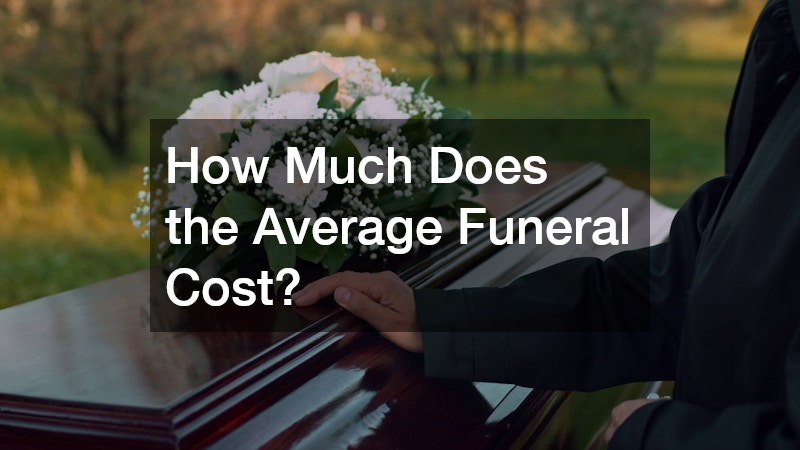Planning a funeral can be an overwhelming process, not only emotionally but also financially. Understanding the average funeral cost is essential for making informed decisions. This article breaks down the various expenses involved in organizing a funeral and how they contribute to the total cost.
Understanding the Basics of Funeral Costs
Funerals come with a variety of costs that vary widely based on location, services, and personal preferences. On average, a traditional funeral in the United States can cost between $7,000 and $12,000. This estimate encompasses numerous components, including the funeral home’s professional service fees, burial or cremation costs, and additional expenses.
The expense of a funeral can often surprise families who are not prepared for the financial burden. For many, the total cost can impact personal finances significantly. Understanding these costs in advance can provide peace of mind and facilitate better planning during this difficult time.
Breaking down the cost can help families make more informed decisions, ensuring they choose services that both honor their loved one and align with their budget. Knowing what to expect allows grieving families to focus on mourning rather than financial stress. It’s vital for families to discuss and plan these inevitable expenses ahead of time.
Detailed Breakdown of Funeral Service Fees
Funeral service fees often account for a significant portion of the total funeral cost. These fees typically include the funeral director’s services, transportation of the body, and embalming or preparation of the body for viewing. Each of these services has an associated cost that can add up over time.
The funeral director’s services include coordinating all aspects of the funeral, from planning the service to handling legal documents. This can be seen as a convenient option for families who are already overwhelmed by the loss. Generally, these service fees range from $2,000 to $3,000, depending on the funeral home and location.
Embalming and preparing the body are sometimes optional services, usually required if there will be a public viewing. This process is intended to preserve the body and make it presentable for family and friends. It is important to consider these services when expecting visitors during visitation hours.
Costs Associated with Burial vs. Cremation
One of the critical decisions influencing funeral spending is choosing between burial and cremation. Burials tend to be more expensive than cremation due to several additional costs, such as cemetery plots and headstones. The average burial, including a basic casket, can cost between $7,000 and $12,000.
Cremation, on the other hand, has a lower overall cost compared to burial. This option often includes a basic service package and urn, bringing cremation costs typically between $2,000 and $5,000. Even though cremation is less expensive, some families might still opt for a more elaborate ceremony, which can increase expenses.
Ultimately, the choice between burial and cremation will depend on personal beliefs, cultural traditions, and financial considerations. Each option has its unique set of factors, and families should ensure they understand these before making a decision. Consulting with a professional funeral planner might provide clarity and assist in making a final choice.
Additional Expenses to Consider
Beyond basic services and methods of interment, other costs add to the total funeral price. These include expenses like flowers, obituary notices, catering, and venue rentals for wakes or memorial services. These additions might seem minor, but they can accumulate to a substantial amount.
Many families also choose to personalize the funeral service with unique elements, such as special music, memory boards, or customized programs. While these enhance the service, they also increase the overall budget. It’s important to factor in such preferences, as they can easily cause the costs to escalate.
While these expenses can be daunting, many individuals and families set aside funds or take out insurance to cover funeral costs. Discussing these plans with loved ones and financial advisors can provide both financial relief and emotional comfort, knowing that funds have been allocated for this purpose. Planning ahead ensures a more meaningful farewell, in line with the deceased’s wishes, without added financial stress.
Tips for Managing Funeral Costs
Despite the financial burden, various strategies can help manage funeral expenses while honoring a loved one’s life appropriately. Pre-planning a funeral is one such option, allowing individuals to lock in current prices and alleviate financial burdens on their families later. Pre-paying can also afford families more time to gather resources and make more thoughtful decisions.
Some families find it beneficial to shop around and compare prices from different funeral homes. This can reveal more affordable options that still align with the family’s goals and the wishes of the deceased. Always check for itemized lists of services and ask if any costs can be reduced or omitted, if necessary.
Another tip is to explore government and non-profit programs that offer financial assistance for funerals. There are various organizations willing to help families with limited means. Understanding and utilizing these resources can significantly alleviate the financial strain of funeral costs.

